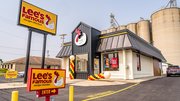News
McDonald's gets tangled up in WikiLeaks cables

December 22, 2010
A U.S. embassy cable from Feb. 15, 2006 reveals that quick-service giant McDonald's attempted to delay legislation of a free-trade agreement with Central America because the chain was fighting a lawsuit in El Salvador. The delay was intended to provide time for El Salvador to appoint neutral judges in the $24 million lawsuit.
According to The Guardian, the legal battle at issue was against a former franchisee. At the time, Dick Crawford, McDonald’s vice president for government relations, had briefed the U.S. ambassador on the company's efforts to get the case settled, admitting the Central America-Dominican Republic-United States Free Trade Agreement (CAFTA-DR) was being used as leverage.
Specifically, the cable discloses that McDonald's engaged in an effort via Washington to put pressure on the Salvadorans to resolve the case, and suggested that CAFTA-DR implementation should be held off until the case's resolution.
Then-Ambassador to El Salvador Hugh Barclay disputed the company, saying the McDonald's effort directly countered U.S. interests in getting the trade agreement in place as soon as possible, and warned the chain that its efforts would incite negative publicity. McDonald's subsequently toned down, but did not cease, its attempts to derail the case.
The drama stemmed from the lawsuit brought forth by Roberto Bukele, a former franchisee who first opened a McDonald’s unit in El Salvador in 1972. He lost his three-unit franchise in 1996 after McDonald's claimed he didn't comply with contractual guidelines, including remodeling, implementing a staff hiring/training plan and obtaining corporate approval of new menu items.
A ruling in 2005 concluded, however, that McDonald's illegally terminated Bukele's contract. The franchisee was then awarded $24 million for loss of earnings.
McDonald's filed an appeal to the Supreme Court, but believed the case would be biased because, in part, of one judge’s documented anti-Americanism.
The chain denies charges that it wanted to delay implementation of CAFTA-DR.
From the story:
"Our purpose was to raise awareness of our concerns with the rule of law in El Salvador and our lawsuit specifically," said a McDonald's spokesperson. "We had no interest in delaying CAFTA. Our hope was that our legal issue could be included in the CAFTA discussions already taking place between the two governments at that time. It's important to note we would have engaged with the US embassy under any circumstances regarding our case."









